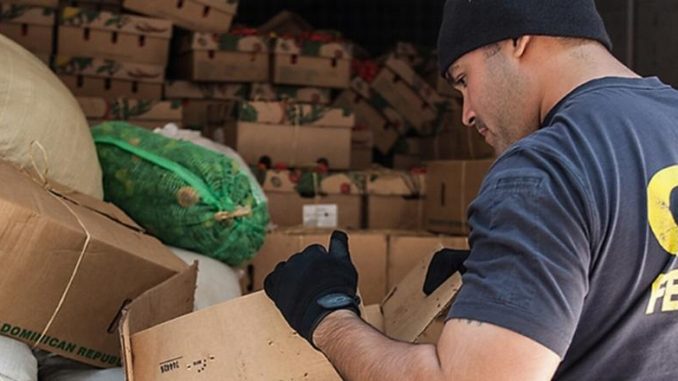
LYON, France, July 23, 2021 (ENS) – A 72-country law enforcement operation jointly coordinated by Interpol and Europol has uncovered “vast quantities” of illicit food and beverage products circulating throughout the global economy.
The operation is codenamed OPSON X – Opson means food in ancient Greek, and the X is a Roman numeral that stands for 10, in this case, the 10th year of international food and beverage law enforcement.
Operation OPSON X mobilized police, customs, national food regulatory authorities and private sector partners to undertake coordinated enforcement actions between December 2020 and June 2021 against illicit food and drink posing serious health risks to consumers.
Europol Executive Director Catherine De Bolle said, “Counterfeit and substandard food and beverages can be found both on the physical market and sold online. The increased health risk for consumers is proportional to the reduced quality of raw materials used in the food processing system.”
Recently, she says, “Low-quality products have infiltrated the food supply chain, an evolution possibly related to the repercussions of the COVID-19 pandemic.”
“With more than 15,000 tonnes of illegal products seized, Operation OPSON X illustrates the importance of cooperation between national authorities and the private sector in protecting consumers’ rights and the quality of the products we put on our tables,” De Bolle said.
The most seized goods in Operation OPSON X were alcohol and food supplements, followed by cereals and grain products. Alcoholic drinks were the most commonly counterfeited, as well as products protected by trademarks, geographic indications or appellations of origin.
Though not directly targeted in the operation, enforcement actions also turned up other illicit items, including fake test kits for COVID-19, HIV and malaria, cigarettes, weapons and ammunition, bush meat and other products of wildlife crime.
In Russia, for instance, police discovered a case containing more than 12,000 copies of pirated computer software, valued at around €100,000 (US$117,600).
In fact, the operation recovered more than 15,450 tonnes of illegal products with an estimated street value of €53.8 million (US$63.3 million).

The enforcement actions have revealed a wealth of new leads for food crime investigations. Nearly 68,000 checks were carried out by the 72 participating countries, resulting in more than 1,000 criminal cases being opened, Interpol said.
Namibian authorities detected 24 irregular migrants during their actions carried out under OPSON X.
More than 600 arrest warrants were issued over the course of the operation, which Interpol estimates to have disrupted the activities of 42 organized crime groups around the world.
Interpol Secretary General Jürgen Stock said, “Food crime may not always seem like a top policing priority but operations like OPSON X demonstrate the massive profits these products generate, which can then fund other organized crime activities.”
“We have built the OPSON operations into a policing phenomenon that regularly disrupts the criminal networks dealing in food fraud while garnering invaluable intelligence,” said Stock.
“The fact that so many of our member countries take part in these operations year after year shows that law enforcement sees the value in uniting our forces to deal an ever stronger blow to transnational crime,” Stock said. “Removing such an enormous quantity of illegal and often dangerous products from the market is a concrete example of how international police cooperation is making the world a safer place.”
© 2021, Environment News Service. All rights reserved. Content may be quoted only with proper attribution and a direct link to the original article. Full reproduction is prohibited.



